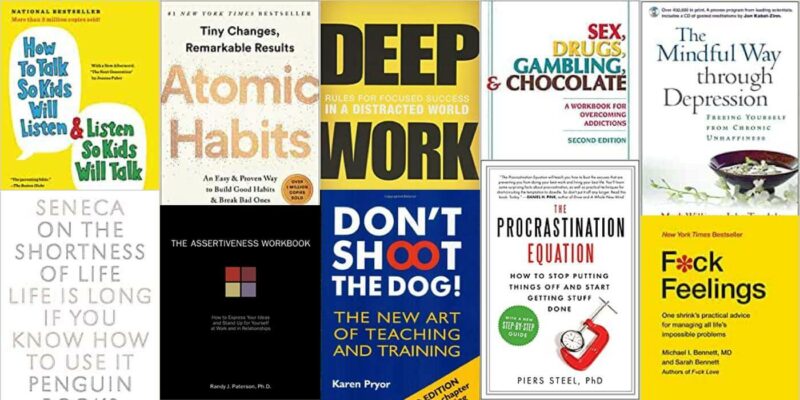Emotional intelligence means understanding how your emotions work and how to work with them well.
What follows are four simple questions you can ask yourself anytime you’re upset.
Not only will they help you make sense of things and feel better in the moment, they’re also good practice for increasing your emotional intelligence in the long-term.
1. What are the facts?
When a client comes into my office upset and confused, there’s one technique I use that never fails to help:
I ask them to describe what happened before they became upset, slowly and in detail.
When emotions run high, we tend to gloss over important factual details of our situation and environment because we’re so consumed with how we feel. As a result, we tend to miss some fairly obvious causes of our distress.
For example, I often hear clients recounting an upsetting argument they had with their spouse in bed. Because they’re so focused on the content of the argument and how they felt, they miss a crucial factual detail: It was 11:00 PM… Of course the conversation devolved into an argument!
A major reason people tend to get into fights and get upset in the evenings is simply because they’re exhausted. Recognizing the important role that time-of-day, for example, plays in our mood helps us be more empathetic and compassionate with ourselves when we’re upset.
If you want to get better at understanding your difficult emotions start by slowing yourself down and observing “just the facts” of the situation.
If you’re not sure where to start, try answering these four questions: When? Where? Who? What?
- When did I first start feeling upset?
- Where was I when I noticed my mood changing?
- Who was I interacting with right before and during my mood shift?
- What was going on that lead up to the way I felt?
In the words of the great psychologist, Sherlock Holmes…
It is a capital mistake to theorize before one has data.
2. What’s my emotional dashboard saying?
Many people don’t understand their emotions very well because their beliefs about what emotions are and how they work is faulty.
In particular, there’s one big mistake most of us make when it comes to our moods and emotions:
We treat painful emotions like diseases, things to be fixed or eradicated.
But just because something feels bad doesn’t mean it is bad.
Luckily, there’s a simple visual image that can help undo this mistaken view of emotion:
Learn to see your emotions like lights on your car’s dashboard…
We all know that feeling of anxiety when the low fuel light comes on while we’re driving. Of course, that sudden burst of fear doesn’t feel good, but it is useful.
Consider what would happen if, the next time your low-fuel light went off and made you feel uncomfortable, you stuck a piece of tape over it?
Well, you’d never feel that uncomfortable running-low-on-fuel anxiety again. Which is nice, until it occurs to you that you are now far more likely to actually run out of gas and be stranded on the side of the highway for an hour waiting for your mom to come pick you up.
See the problem?
When it comes to both your emotions and your car dashboard, the feeling isn’t the problem. In fact, it’s just trying to help. And simply avoiding it just sets you up for more trouble down the road.
Most bad moods and persistently painful emotion come from getting in fights with our feelings:
- We feel sad, insist that we shouldn’t, then start beating ourselves up for all the ways we should be improving, all the reasons we should feel happy and content, all the mistakes we should have avoided, etc.
- We feel anxious, interpret that to mean something awful is going to happen, and then spend the next 3 hours in a frenzy of worry and panic.
- We feel bad for someone, assume that we should have done something to prevent their misery, then spin ourselves up into a storm of guilt, self-anger, and depression.
The common denominator in all these examples is a combative and aggressive relationship with our own feelings. And turns out, when you constantly pick fights with your emotions, they tend to fight back:
- Problem-solving your anxiety leads to panic.
- Ruminating on your anger leads to rage.
- Criticizing your sadness leads to depression.
If you consistently struggle with painful emotions and difficult moods, it’s your relationship with your emotions that’s the problem, not the emotions themselves.
So, if you want to create a better relationship with your emotions, especially the painful ones, you need to start seeing them as messengers trying to give you information, not enemies to be defeated.
Like lights on your car’s dashboard, they may not feel good, but they’re just trying to help.
This small shift in thinking sets you up for a much healthier relationship with your own emotions.
3. What’s my story?
Once you’ve paused to collect the facts about your situation, acknowledged your emotions with curiosity and kindness, you’re ready for the third question for better emotional intelligence:
What’s my story?
Anytime something bad or scary or generally upsetting happens, we create a story in our heads about that event.
Often, this storytelling takes the form of negative self-talk, the voice inside your head that says things like:
- Ugh… I’m such a screw-up. I knew should have just kept your mouth shut!
- Why does she always have to be so sarcastic? It’s like she doesn’t even love me anymore. Getting married was probably a mistake. We’ll never be happy…
Understanding our habitual and sometimes automatic self-talk is the key to understanding why we feel the way we do and how to feel better.
Each of us is the protagonist in the story of our life. But we’re also the narrator. And the author.
See, emotions are not discreet things that simply pop into our brains. They are experiences that we actively construct. We take incoming sensory information about what happened (the facts) then interpret those facts via thinking processes like self-talk (the story), and the result is an emotional experience that we’ve created.
Of course, we can’t always control what happened to us (events), and we can’t always control what thoughts pop into mind (automatic thoughts), but we can control continued habits of thought like worry, rumination, self-judgment, and the like. And if we can learn to control this storytelling, we can exert a powerful level of control over how we end up feeling emotionally.
So the next time something upsetting happens and you feel a surge of strong emotion like fear or sadness, ask yourself:
- What’s my story?
- What are the thoughts running through my mind?
- How well does my story fit the facts? Is my theory based on genuine evidence?
- Is there another story or theory that fits the facts better?
To be clear, changing your story won’t eliminate your emotions. And it’s not necessarily the case that you should.
But if you frequently feel like your emotions are excessive and overwhelming, it’s worth trying to understand how your habits of thought are affecting your emotional life.
If you ant to learn more about this topic, check out this article I did on cognitive mediation.
4. What do I really want?
So far, we’ve used three simple questions to uncover the fundamental emotional formula of our lives:
Event + Story = Emotion
When we train ourselves to ask What are the facts? What’s my emotional dashboard telling me? and What’s my story? we can start to see the emotional machinery influencing our moods and how we feel.
Like Dorothy and Toto pulling back the curtain on the Wizard of Oz, we can begin to see that the most frightening of monsters often turns out to be nothing more than a funny little man pulling some levers.
But there’s one final step—one last question—that we need to be truly emotionally intelligent…
What do I really want?
If we’re honest, nobody’s vision for the good life is simply the absence of pain. We all know, deep down, that happiness doesn’t come from the mere absence of suffering.
The good life is about growth and learning and exploration. It’s about figuring out the most important things and going after them with everything we’ve got. In a word, it’s about values.
Emotions determine the quality of a moment, but values determine the quality of our lives.
In my clinical practice, something tragic I saw over and over again was that people would do all sorts of hard work to become more emotionally intelligent and get a handle on unhelpful habits and thought patterns, all in an attempt to feel better. And many times they succeed… for a bit.
But so often, the struggle returns after 6 months, a year, even several years. Because without a broader sense of purpose and values, the tips and tricks of emotional wellbeing don’t matter.
As I tell my anxiety clients all the time:
It’s a lot easier to let go of worry when you have something else to focus on that you’re genuinely excited and passionate about.
In the long-run, emotional intelligence acknowledges that life is about much, much more than how we happen to feel in a given moment. All the complexity and nuance of our mental habits and emotional range are meant to live in service to our values, our aspirations, the things we really want.
So take a moment to ask yourself: What do I really want?
- What excites me and lights my fire?
- What are my guiding principles, my North Star?
- What are my dreams and aspirations?
Ultimately, emotional health is about more than relief of pain and suffering—as important as those are. It’s about flourishing and living out your potential.
So take some time to sincerely identify and clarify your values.
All You Need to Know
Building emotional intelligence means learning to see and understand your emotional life as it really is (not how we wish it was).
So, the next time you’re upset, take a breath, hit the pause button, and ask yourself four questions:
What are the facts?
What’s my emotional dashboard telling me?
What’s my story?
What do I really want?
Work with Me
Once a year, I lead a small group of students through my live Mood Mastery program. Over the course of 5 weeks, I’ll teach you the core skills you need to build mental strength and emotional resilience for life.
Learn more about Mood Mastery →





14 Comments
Add YoursI enjoyed this article it’s Inspiring I love it .
Very Well Written and very True!
Love it and will use it!
Hi Nick,
I’ve been following you for more than 2 years and have worked myself a lot through your texts and course.
Not an easy progress, but possible, if we work consistently.
I feel much lighter and happier, and better prepared to “keep walking”Nick.
One of the most informative articles I have seen in my life
thanks a lot
A very beautiful article. Thank you so much for linking emotional intelligence to values to purpose of life. ????
A person needs to sit and do self contemplation everyday for 15 minutes –
Who am I?
What is my purpose in life?
What are my values in life?
What did I do right to stick to my values?
What did I do wrong today that I could not stick to my values?
What can I do right tomorrow to better stick to my values?
This is Meditation. To better oneself by evaluating yourself every single day.
Amazing, I hope I can remember this when I need it the most
Nick, You are amazing Author and Psychologist. You simplified the EQ in a way to be understood by many of us. Emotions play great part in communicating in general.
My heartfelt gratitude.
Wonderful, valuable article. Thank you!
Very useful advice.
Great article, easy to read, understand and apply. I always read all your articles, I have learn so much.
Thank you.
Nick!
Thank you.
Dorotea from Poland
Such a comprehensive and insightful perspective on understanding the value of emotions and how to leverage them as instruments on the dashboard of our lives. You have given us a practical guide to reading and interpreting our inner compass: the Heart. Thank you so much for sharing, Nick.
Discovering the true self, being authentically yourself in all situations and moments of life is a 100% work in process. Does it ever become like breathing in and out?
Nick, I love reading your articles and after some particularly hard years in my life, you are helping me rebuild. Thankyou Trish in Sydney